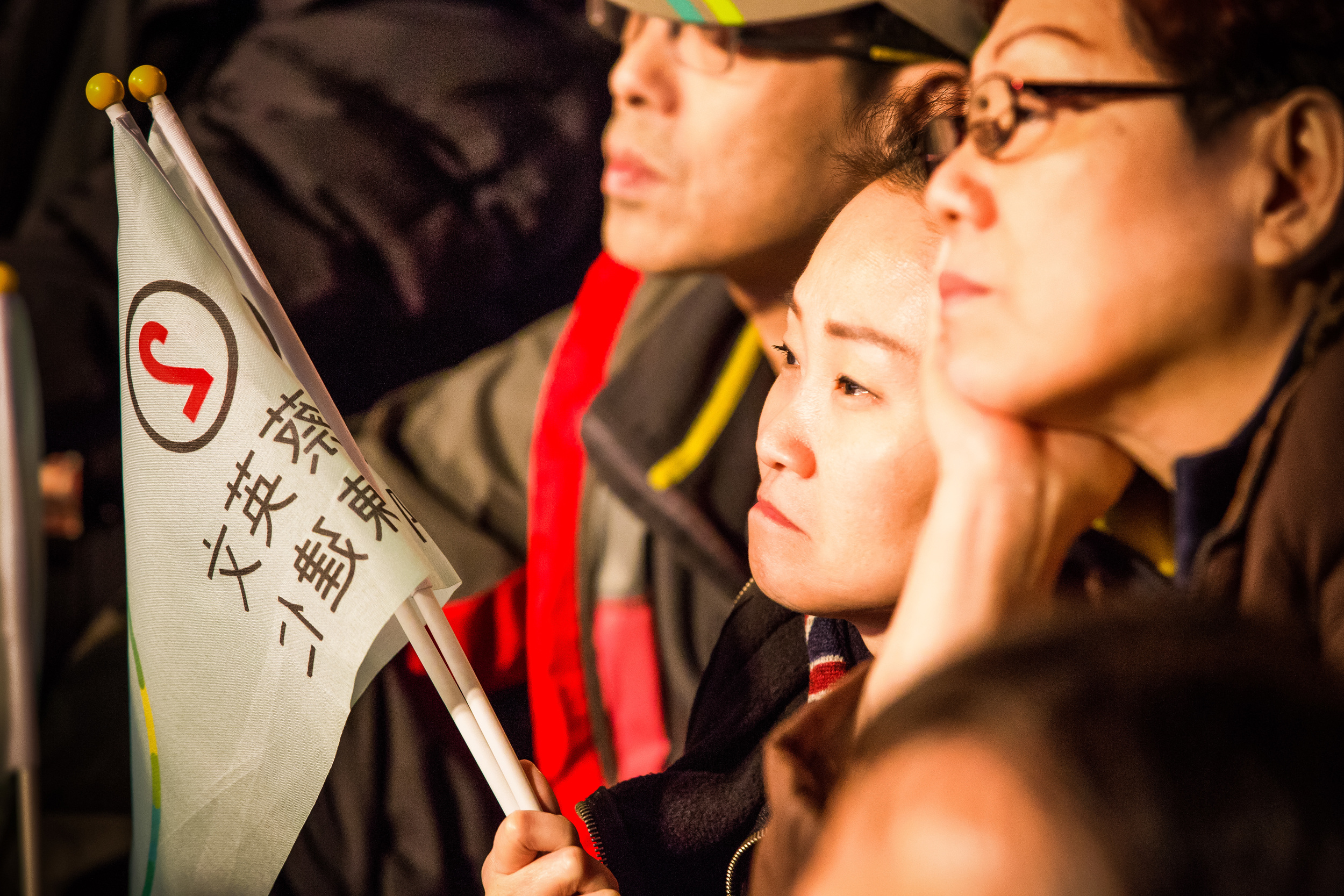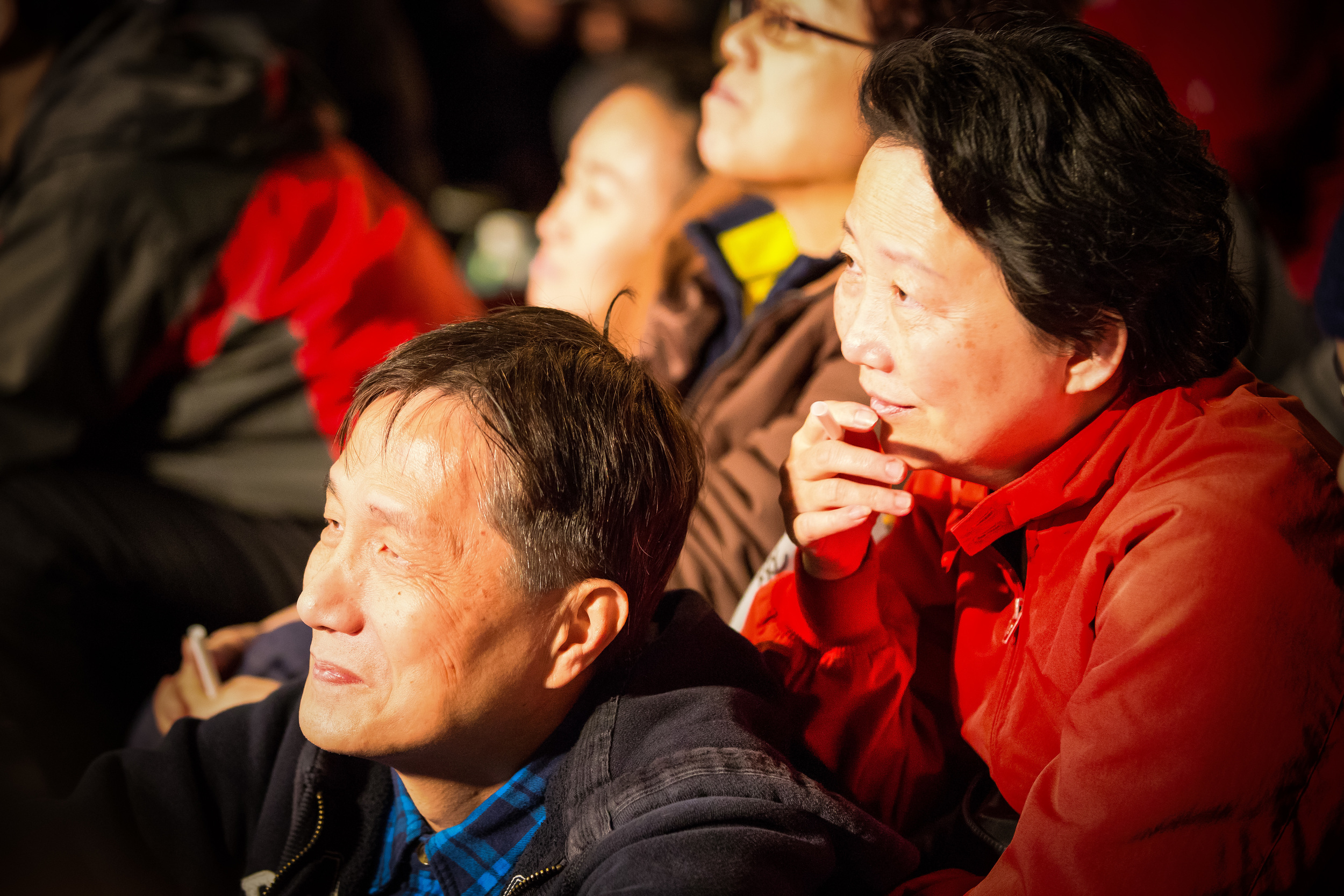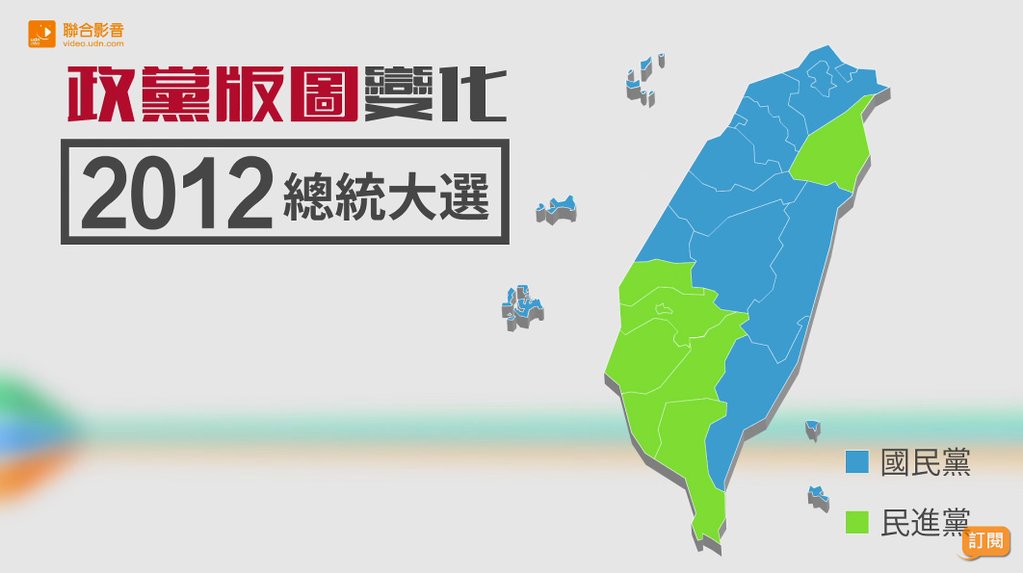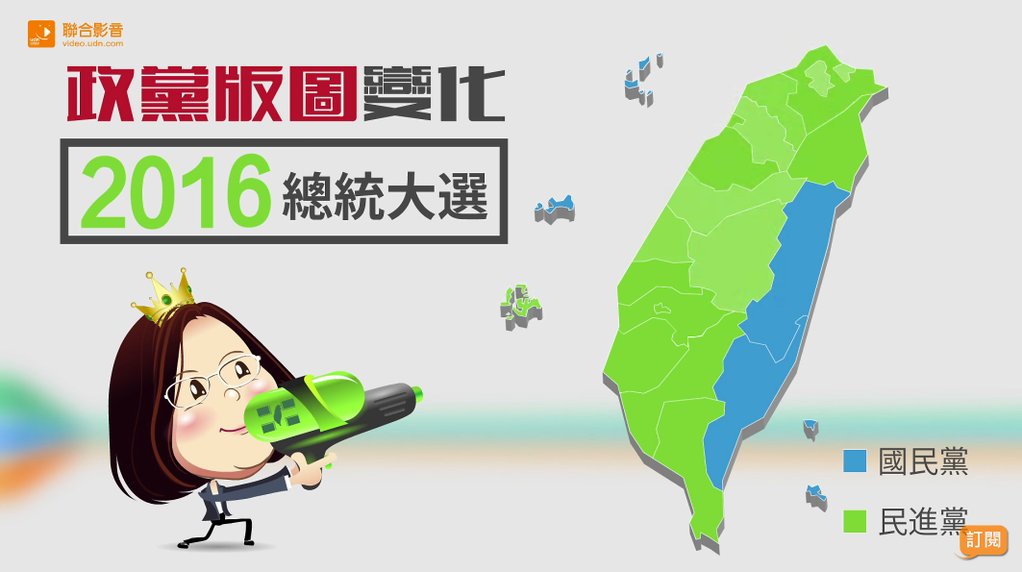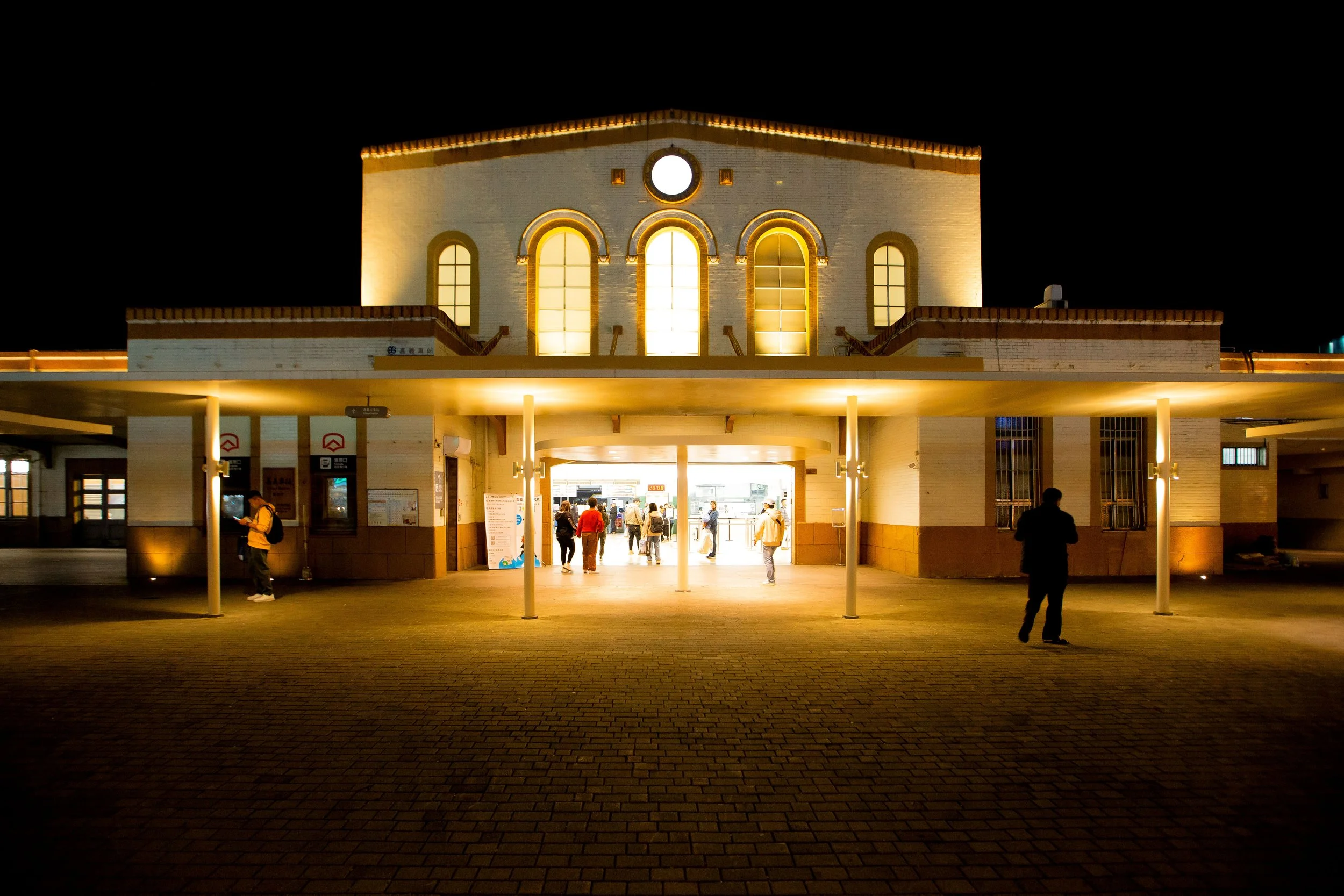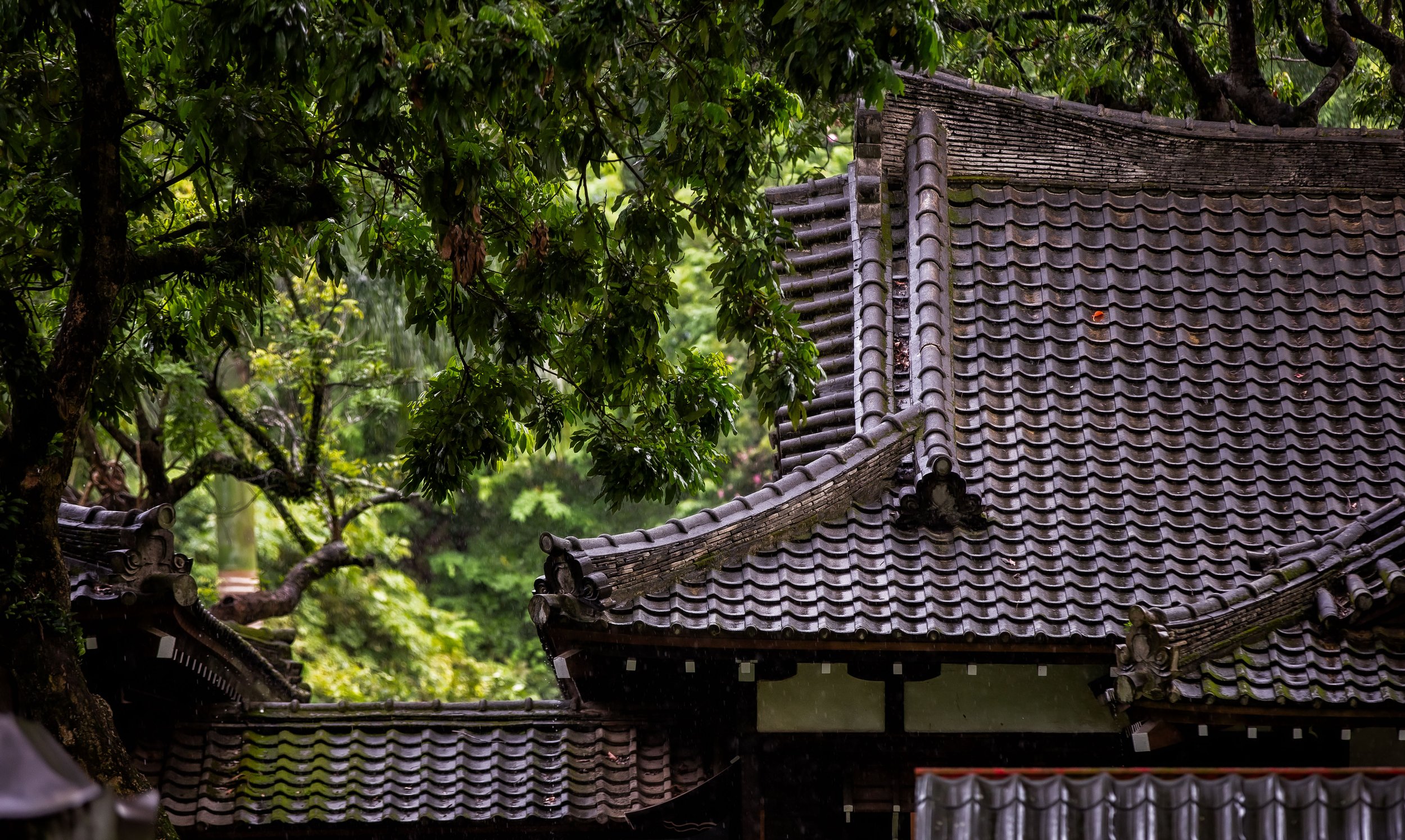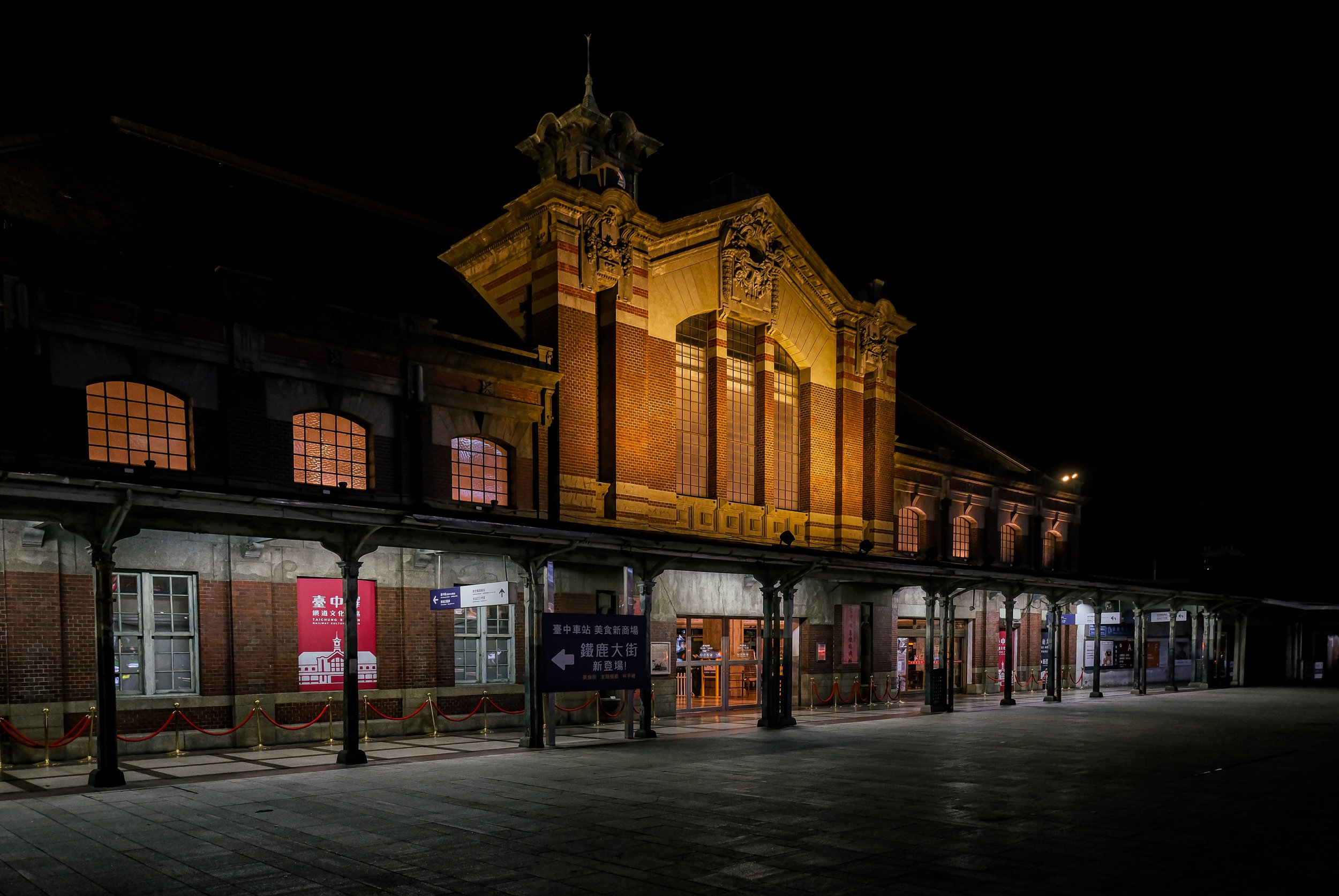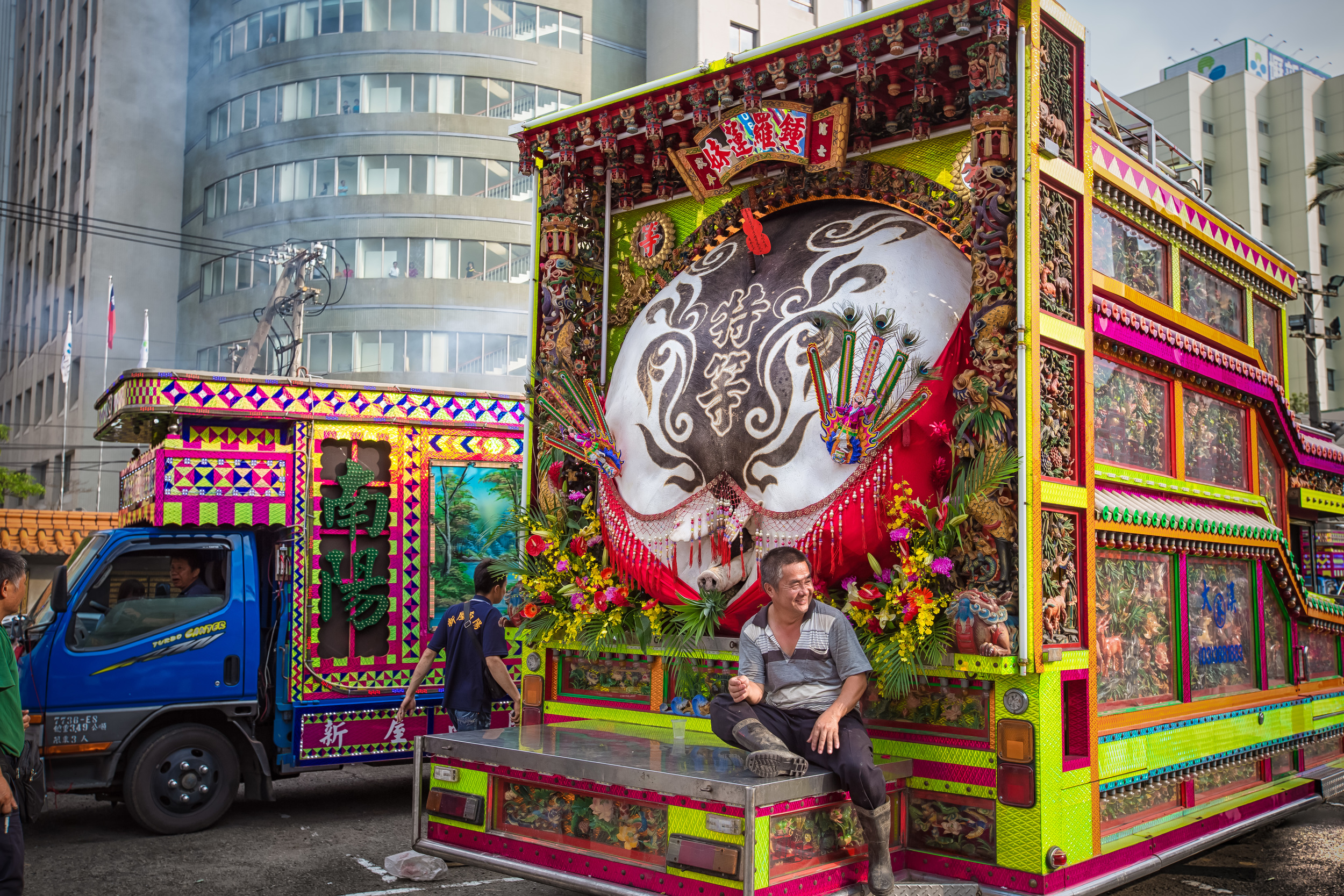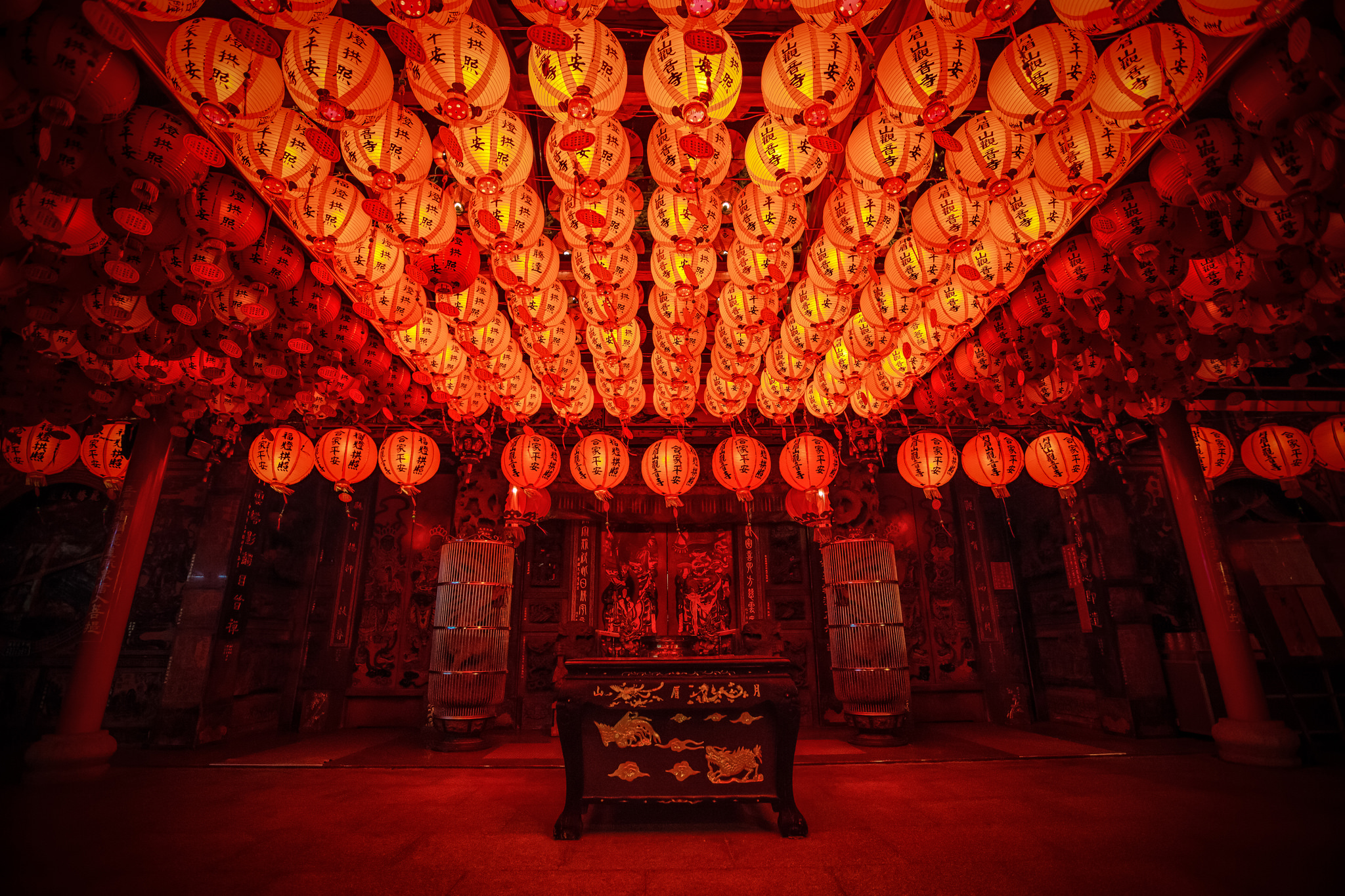The results are in, the people have spoken and the way in which they voiced their opinion through their democratic privilege was very clear and a direct criticism of the past eight years of governance. The ruling KMT was dealt a crushing defeat, the second embarrassing result for the party since November 2014 and has completely changed the political landscape of the country.
Polls before the election, which was held on January 16th, 2016, were quite confident of the result and for the most part they were right give or take a few surprises and upsets. Despite a low turnout for the election, the people who did vote voiced their opposition to KMT's way of doing things and the way President Ma Ying Jeou (馬英九) has governed the country for the past eight years.
The party was given a majority in the legislature in 2012 to go with the presidency and was still unable to enact any real positive reforms or initiatives that would positively effect the people of this country. The presidents economic "6-3-3" policy was a massive failure and as time ran down on his presidency he became more introverted and ignored the will of the people. In the legislature, the party attempted to secretly push through legislation and pass party-centric education textbook reforms which erupted in massive country-wide protests, a citizen takeover of the legislature and discontent even within their own ranks.
Still after all of the turmoil of the past few years, the KMT has yet to realize it's mistakes and atone for them. They still view theirselves as the 'natural ruling party' and the most righteous party at that. In the aftermath of the election we have seen legislators who have been unseated blame other factors for their loss while not addressing their own faults. This unrepentant attitude in addition their poor governance is why the Taiwanese electorate dealt them such a crushing blow.
The KMT attempted to make this election about relations with China. They believed that they were the only party capable of communicating with the Chinese and that closer relations with Taiwan's largest neighbour would benefit the people of this country. This argument however wasn't really based in reality as economic policy over the past eight years has done a lot to bring the two countries closer, but has done very little to positively affect the livelihood of the people of Taiwan.
The dismal economic situation has led to a lot of hopelessness for the younger generation (which doesn't identify with China) and the thought of yet another KMT government would only cause them further distress. Young people came out and they campaigned, they voiced their opinions and they formed new political parties to combat the polarization of Taiwanese politics. The young people of Taiwan are extremely intelligent and well versed in democratic principles - They knew that if they were to have any hope for a brighter future that things would have to change. And that they would have to be more active in the political process to ensure change was coming.
"Hope" is what the opposition Democratic Progressive Party (民主進步黨) and its presidential candidate Tsai Ying Wen (蔡英文) campaigned on. The people of this country, both young and old were looking for hope and they saw that in this shy academic who ran on a platform of constitutional reform and a fresh take on economic policy which is based on forming (and reforming) partnerships with all of Taiwan's regional neighbours rather than focusing on just one.
The victory party, which I mentioned in my previous post about Taiwanese Democracy was held in front of the DPP headquarters in Taipei and was an amazing event that I'll probably never forget. I've been a resident of Taiwan for over a decade and despite the fact that I can't vote, I still share a lot of the same concerns as the youth of the country.
The crowd was a healthy mix of young and old and was quite exuberant. Every time a party heavyweight came out to make a speech they clapped, waved their flags and made a lot of noise.
I arrived early enough to squeeze myself into the middle of the crowd to get in the thick of things. I'm actually a bit claustrophobic at times, but I put that aside for a while and did my best to enjoy the experience and put myself in a place where I could get shots of what was happening on stage and also shots of the people in attendance.
There was a large screen behind the stage that was projecting realtime results of the election and every time something happened the crowd erupted. The first major surprise was that Hau Long Bin (郝龍斌), deputy chairman of the KMT, former Taipei Mayor and a KMT princeling lost his bid for a legislative seat in Keelung. His loss also ushered in his resignation as the deputy leader of the party. The crowd erupted at the amazing victory and the hosts came out on stage to thank and bow to the people of Keelung for their support.
Shortly after that at around 7:00pm, KMT presidential candidate Eric Chu (朱立倫) appeared on screen and conceded defeat as he was by that point losing by over three million votes. The crowd went wild seeing a man who staged a hostile takeover of the party candidacy from its former candidate Hung Hsiu-chu (洪秀柱) and ran a negative campaign (with personal attacks on Tsai and her family) on stage admitting defeat. During his concession speech he said he would resign as chairman of the party and work hard in his position as mayor of New Taipei City.
At that point it was just a matter of time until the new president appeared to claim her victory. A notice appeared on the large screen that the president-elect would hold an international news conference at 8:30pm and then make her acceptance speech shortly thereafter. This gave the crowd some time to celebrate and enjoy some live music, speeches from DPP heavyweights and watch the legislative results pour in.
The party secured what they referred to as a "home run" in the southern counties and quickly started gaining seats in the north. The crowd however expected that and seemed to pay most attention to two seats in Taipei, one in Taichung and another in Hualien that if won would be emotional victories for the nation, the party and its allies.
The first of those was that of Huang Kuo-Chang (黃國昌), one of the leaders of the Sunflower movement and a founding member of the New Power Party (時代力量) as well as a former professor of law at Taiwan's prestigious Academica Sinica. Huang's victory proved that the Sunflower student movement (太陽花學運) was more than just a mere youth protest movement but a force for positive political change in the country.
The crowd then gasped with amazement when political newcomer Hung Tzu-Yung (洪慈庸) won a seat for the New Power Party in Taichung. Hung is the older sister of Hung Chung-Chiu (洪仲丘) a military conscript who died while being punished for bringing his cellphone onto the base a few days before he was about to discharged. His death sparked mass protests across the nation and served as a lightning rod for the youth of the country who felt that the current state of affairs in the country did not represent their values.
The crowd then exploded with applause when Freddy Lim (林昶佐) unseated a 20 year veteran of the Legislative Yuan. Lim, the lead singer of the death metal band CthoniC (閃靈樂團) and former chairman of Amnesty International's Taiwan chapter became an international news sensation with his political aspirations, long hair and tattoos. Freddy seemed to be the perfect candidate for the New Power Party because of his past work with the student movement and with human rights initiatives. The party focuses on transitional justice advocating for human rights, civil and political liberties as well as maintaining Taiwan's independence and sovereignty. (Check out this Freddy interview by Taiwan Reporter)
Finally, Hsiao Bi-Khim (蕭美琴) a member of the DPP won a hard fought battle in Hualien in a district that has always voted for the KMT and was thought to be un-winnable. Her campaign was fought extremely well despite attacks from the KMT and Christian groups who attacked her for her perceived homosexuality and stance on same-sex marriage. Hsiao brings to the table an excellent knowledge of foreign affairs and she will be a great asset for the new government as it looks to expand trade opportunities with other countries.
At the end of the night, the KMT lost the presidency and the majority they held in the legislature. The DPP will take control of the legislature in February with 68/113 seats in the legislature with their allies in the New Power Party holding 5. The KMT will have 35 seats and will serve as the opposition party, something they will reluctantly have to get used to after over five decades of power.
When the president finally came out, the crowd erupted with cheers of "總統好" (Hello President) The emotion of the moment got the better of quite a few people who had tears in their eyes while smiling and waving their "Light Up Taiwan" (點亮台灣) flags. The new president had a very unifying acceptance speech and promised to do her best to fulfill her role as president of Taiwan and work every minute of the day to ensure a better future for the 23 million people living here. She promised to work hard to bridge the gaps of political polarization in the country and work together with opposition parties to protecting national sovereignty and make Taiwan a stronger, more united nation.
The following is a translated excerpt from her acceptance speech and has been being spread around social media since the victory:
Today, we have accomplished something important for Taiwan. We have told the world that Taiwan is a democracy, and democracy is in Taiwan.
The great thing about Taiwan is that everyone has the right to choose their own future.
Everyone should respect this freedom. This election has proven to the world that Taiwanese are a free people. No one should have to apologize for their national identity.
Dignity, solidarity and confidence are the new Taiwan.
We are more brave after today.
At the end of the evening, music was playing, people were cheering and the crowd was shouting "We are Taiwanese, We are Taiwanese, 我們是台灣人" lead by legislator and MC of the night Hsu Kuo Ying (徐國勇) who remarked to the people around the world who were watching that "With our votes, we proved that we are a sovereign and independent nation!" before adding: "This is our nation."
The international news media seems to have covered the election with the same China-centric stupidity as usual, so I just want to close this post with a reminder that President-elect Tsai isn't "Pro-Independence", she is "Pro-Taiwan" and Taiwan is not a "renegade province", it is a free liberal democratic nation where the people take have a voice in their future. The media may have a gun to its head, but it is the responsibility of a free press to print facts and not propaganda.
Below is a list of links that provides more responsible information about the election and better analysis. As it is still quite early and the dust is still settling, I'll make sure update the links as more responsible analysis and commentary becomes available.
I'd like to close this by saying that I'm extremely proud of Taiwan for experiencing yet another peaceful transition of power and I'm hopeful that change is coming to the country I love.
蔡總統加油!臺灣加油!
Part One - Democracy in Taiwan
Solidarity Taiwan - Election Analysis | Wikipedia Coverage |
- Taiwan Elections 2016: Essential Electionic Resources - A complete list of resources
- Frozen Garlic: A Blog on Elections in Taiwan - Excellent Analysis
- Solidarity Taiwan - Translated news and polls
- The View from Taiwan (Michael Turton) - News, Polls and Opinion
- Thinking Taiwan - News and Opinion
- New Bloom Magazine
- Letters from Taiwan
Tweeters to Follow
Elias 林宣谷 | ジェームス | Ben Goren | Michael Turton | Michal Thim | J Michael Cole | Gwen Wang | Ketty W. Chen | Jonathan Sullivan | Frank CT Hsieh



